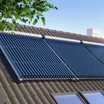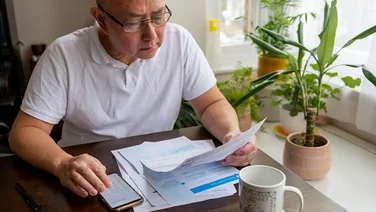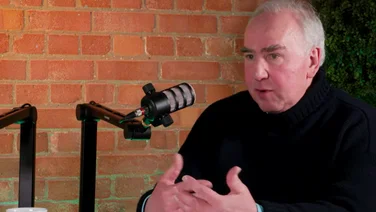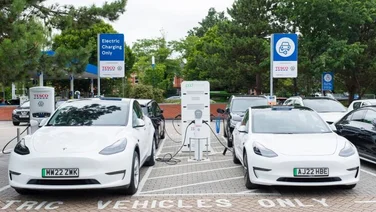We receive a small fee from trusted installers when you request a quote through our site. This helps us keep our content independent, well-researched and up to date – Learn more
- The energy price cap will rise by around 28p per month for average dual fuel household, equating to £37 lower than the same period in 2025
- Ofgem recommends considering a fixed rate tariff
- The price is based on typical household energy use

Energy bills for a typical household will rise by 28p per month for the average dual fuel household from 1 January to 31 March 2026, energy regulator Ofgem has announced.
The rise will see an average household paying by direct debit for gas and electricity will be £1,758 per year. Compared to the level between January and March 2025, it is 1% or £20 higher.
Ofgem’s energy price cap is set every three months and puts a limit on what suppliers can charge consumers for each unit of energy. It impacts the bills of more than 20 million households in England, Wales and Scotland, around 65% of households.
According to Cornwall Insight, wholesale energy prices have fallen slightly compared to the previous quarter, and non-wholesale increases have limited the overall changing in bills.
The average annual electricity standing charge will also change. The average standing charge from January to March 2026 will be £200 for direct debit and prepayment customers, from £196. Gas standing charges will increase from £124 per year to £128.
However, the actual rates you are charged will depend on where you live, how you pay your bill and the type of meter you have.
For example, North West households will pay 52.22p per day standing charge and 28.45p per unit.
Northern Scotland will pay 62.07p per day standing charge and 28.36p per unit, and London households will pay 47.11p per day standing charge and 27p per unit.
The energy price cap announcement also ensures prices for people on a default tariff (standard variable) are fair and reflect the cost of energy.
Households are covered by the price cap by either:
- Standard credit (payment made when you get your electricity and gas bill)
- Direct debit
- Prepayment meter
- Economy 7 meter
Electricity and gas unit prices from 1 January to 31 March 2026
The cost of electricity and gas per kWh changes every three months.
From 1 January to 31 March 2026, this will rise to 27.69p per kWh for electricity, whereas gas will drop slightly to 5.39p per kWh.
Households also pay a daily standard, which will be 54.75p for electricity and 35.09 pence for gas from July. All pricing is inclusive of 5% VAT.
Overall, a typical household will be paying £35 more a year for their energy bills.
For a full list of pricing for your region, check out the Ofgem website or our guide on What’s the price of electricity per kWh right now?
Energy Price Cap tracker
Take a look at how the energy price cap has changed since it was first introduced in January 2019 in our chart below.
Between October 2022 and March 2023, during a period of particularly high gas prices, the government provided households with £400 through the Energy Bills Support Scheme (EBSS). This was paid via monthly installments and was reflected on household energy bills.
While energy prices have come down significantly since that period, they have still not returned to pre-Covid-19 levels.
What are the most cost-effective ways to reduce energy bills?
If you’ve been pushing energy-saving solutions to the bottom of your to-do list, now is the time to change that.
Some changes require significant upfront costs, a huge barrier, especially as households are grappling with the cost of living crisis. However, others are low cost to install.
The first thing we recommend is check your house for any draughts. If you find the source, you can then research suitable solutions, as draught-proofing windows and doors can save you roughly £35 a year.
For your doors, you can get a draught door excluder – a long, stuffed, cushion-type device that’s heavy enough to block out draughts. It lays across the door and will prevent cold outside air from coming into your home. You will be able to buy these in most discounted retail stores or online for a small cost. Prices range from £4 to £30.
Other changes include:
- Install LEDs: Swap your bulbs for LEDs, each bulb can save up to £5 a year on electricity. You’re also less likely to need to replace them as often as standard bulbs
- Look after your fridge: Avoid putting warm food in it straight away as it works harder to cool down. Regularly clean it too.
- Utulise food waste apps: Apps, such as Too Good to Go, allow you to buy food at a discounted rate. They often go past their sell by date meaning stores can no longer stock it, but it’s still good to consume. This can help save money on lunches or other meals.
- Replace worn-out windows: Almost 45% of energy escapes from windows, so if you’ve yet to install double-glazing, it might be worth looking into.
- Insulate your home: There are different types of insulation to consider, such as cavity wall and pipe insulation.

Get a double-glazing quote
Answer a few simple questions, and a trusted double-glazing installer will be in touch with a bespoke quote for your home.
There are lots of other ways to reduce your energy bills, but you can dive into fourteen ways by using our guide.
Also check out our guide on improving your EPC rating, as this can also help reduce your energy bills overall.
Think about renewable energy options
According to The Eco Experts National Home Energy Survey 2024, more than half of homeowners cite reducing their energy bills as a key motivation for adopting low-carbon technology and renewable energy.
The most-common forms of low-carbon technology include:
The price of solar panels is a barrier for some, and one of the most popular questions we get asked is ‘how much are solar panels?‘ However, our page on solar panel costs should give you everything you need to know.
Another great way to save energy and money is to install double glazing. Have a look at our page that looks into the best double glazing companies.

Get a solar panel quote
Answer a few simple questions, and a trusted solar panel installer will be in touch with a bespoke quote for your home or business.
Some will require high upfront costs, but there are government incentives to help:
- The Boiler Upgrade Scheme
- ECO4 Scheme
- Warmer homes Scotland
- Nest – for households in Wales
- Warm Homes Local Grant
There are a whole host of grants for solar panels, and some installers also offer finance options to help you spread the upfront costs.
What can you do if you’re struggling?
High bills in recent years have led to ballooning levels of customer debt to suppliers, with just under £4bn owed to suppliers.
Dame Clare Moriarty, chief executive, Citizens Advice, told the BBC that the latest energy price cap announcement would be “cold comfort to the millions paying off a mountain of debt on top of their monthly costs” and that the government must prioritise making homes more energy efficient.
“[The government] must provide more targeted energy bill support to those hardest hit, and upgrade 5 million homes with energy efficiency measures,” Moriarty said, commenting that while ministers have tried to support pensioners, people with children are “often struggling most of all with energy”.
If you’re struggling to pay your energy bills, the first port of call should be to contact your energy supplier.
You can ask about a payment plan that works for you, ask about any hardship funds or ask if you can pay smaller amounts more often.
Also check to see if you qualify for any grants or schemes from your local authority. Some charities have hardship funds, too. You might also qualify for benefits.
What are the early energy price predictions for April?
Cornwall Insight said its initial forecast for the April-June period show the price cap will rise to £1,815, a £57 increase from the January cap.
Dr Craig Lowrey, principal consultant, Cornwall Insight said this is due to the expectation of higher charges for operating and maintaining the UK’s energy networks, particularly electricity transmission and gas distribution.
He said that next week’s Budget could bring further changes to energy bills, adding that options under consideration include removing VAT, which would cut around £80 from January’s bill, and revising, moving, or eliminating certain levies and subsidies.
“As expected, the January price cap is pretty much holding steady compared to October, but the story doesn’t end there. Our forecast shows bills climbing again in April, but not because of wholesale energy – it’s down to the non-energy costs that keep the system running and future proofed,” he said.
“With the Budget just around the corner, it is possible that households may not end up paying this cap level. There has been widespread speculation as to whether the Chancellor could potentially reduce energy bills – whether through removing VAT or adjusting levies. However, the reality is that this is a zero-sum outcome.”
Lowry added that costs still need to be recovered, whether through bills or taxes, as the pipes, wires and networks still need investment as the UK transitions to a cleaner, more secure energy system.
“On top of that, policy costs, like support for nuclear projects and schemes to protect vulnerable households all come with a price tag. Shuffling these costs around might make energy bills look lower, but it won’t deliver real and enduring savings for most households,” he said.
“A low carbon system means more energy security and less exposure to the rollercoaster of fossil fuel prices.
“These upfront costs represent an investment in stability and affordability for the long run, and that’s a message we need to keep front and centre, while not ignoring the critical issue of immediate affordability for both households and businesses alike.”

Get a heat pump quote
Answer a few simple questions, and a trusted heat pump installer will be in touch with a bespoke quote for your home or business.









